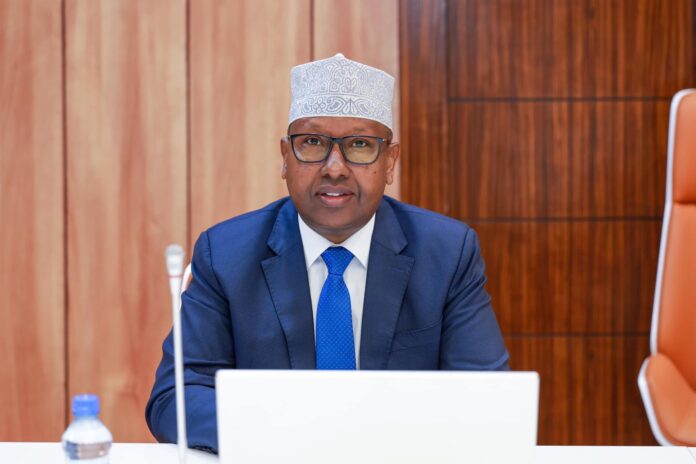MOGADISHU, Somalia — In a recent press conference, Somali Foreign Minister Ahmed MoFiqi expressed strong opposition to Ethiopia’s demand for a military presence in Somalia, attributing the collapse of recent talks in Ankara to this insistence.
“Ethiopia’s push for a military foothold on our soil is unacceptable,” MoFiqi stated, highlighting the historical grievances over Ethiopian military actions in Somalia during 2007-2008.
MoFiqi acknowledged the sacrifices made by AU forces, including Ethiopians, in the fight against al-Shabaab but emphasized that this does not justify territorial or maritime claims by Ethiopia. “If there’s a need for compensation for the bloodshed, it should not involve further bloodshed,” he remarked, referencing the potential for future conflicts over sovereignty.
Regarding the future of peacekeeping in Somalia, MoFiqi clarified that the decision on which countries will contribute to the new AU Support and Stabilization Mission in Somalia (AUSSOM), set to replace ATMIS in January 2025, lies with Somalia. “Every country that has participated in ATMIS did so voluntarily, and the same will apply to AUSSOM,” he added, underscoring Somalia’s sovereignty in these decisions.
Meanwhile, Ethiopian Foreign Affairs spokesperson Nebiyu Tedla provided insights into Ethiopia’s stance on the AUSSOM mission. “The final decision on AUSSOM’s composition and operational details is pending,” Tedla noted, indicating that Ethiopia’s participation would be contingent on further analysis and consultation with regional and international partners. He emphasized Ethiopia’s security concerns in Somalia, suggesting a cautious approach towards involvement in the new mission.
The transition from ATMIS to AUSSOM marks a significant shift in the AU’s strategy in Somalia, aiming for a more sustainable and locally integrated security approach. However, the discussions around the composition and the operational mandate of AUSSOM continue to be a point of contention, reflecting broader geopolitical tensions in the Horn of Africa.





